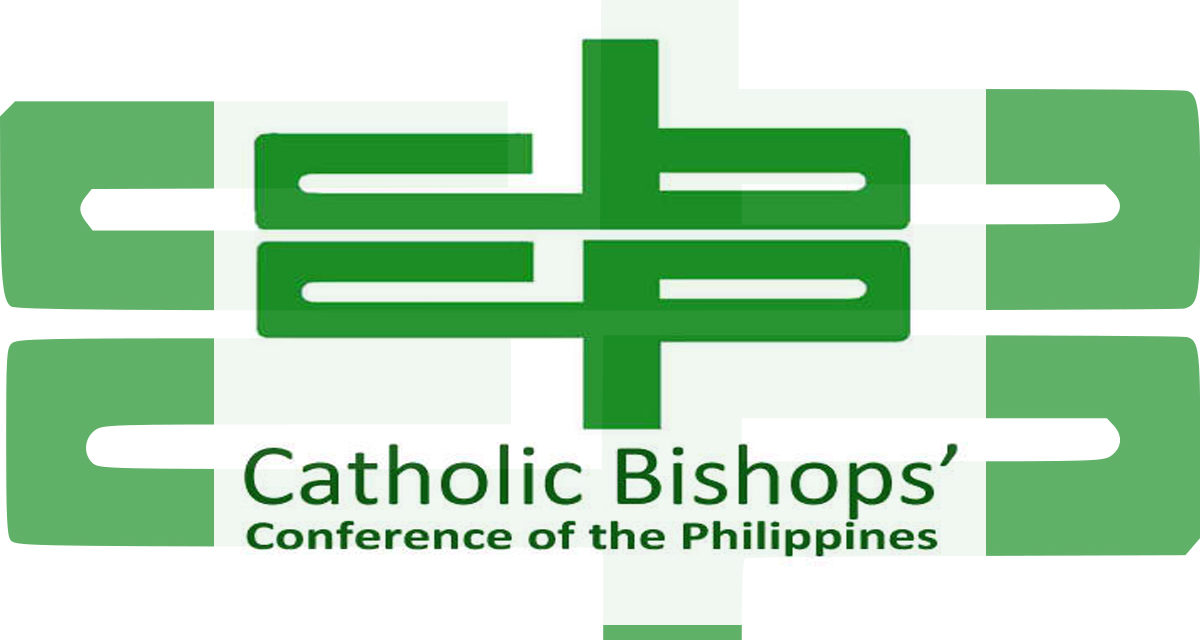
Roman Catholic bishops of the Philippines remain opposed to any moves to amend the 1987 Constitution even questioning the timing of the proposed charter change.
Catholic Bishops’ Conference of the Philippines (CBCP) president Archbishop Romulo Valles of Davao said there is no need to amend any provision of the Constitution while the country is still battling the coronavirus disease 2019 (Covid-19) pandemic that has brought the country’s economic performance to its lowest since 1947.
“When I mentioned two previous documents from the CBCP, with prudent wordings, we said not yet, not this time,” Valles said in a virtual presser.
“The statement from the particular commission will stand as of now. We discussed that and we support the statement of that particular commission,” Valles added.
“We are against Charter change, based on previous statements. And we still are,” Bishop Pablo Virgilio David of Kalookan, CBCP Vice President, said.
David added that the CBCP, as a collegial body, has not yet decided if it is issuing a new statement on charter change but may do so depending on the developments.
“We made ourselves very clear especially in the 2018 CBCP pastoral letter on charter change. That’s precisely why we did not yet feel the need to issue a new one because our previous pastoral statement on charter change was just in 2018 and that’s just 3 years ago so it is still very relevant,” he said.
The CBCP issued its Pastoral Guidelines for Discerning the Moral Dimension of the Present-day Moves for Charter Change on January 29, 2018 expressing the bishops’ position on attempts to amend or change the Constitution.
“Our moral stand was and remains consistent, namely: Amending the fundamental law of the land, so carefully crafted for the common good after years of dictatorship, requires widespread peoples’ participation and consultation, unity of vision, transparency, and relative serenity that allows for rational discussion and debate,” the pastoral statement signed by Valles for the CBCP said.
David questioned the timing of the attempts to amend the charter given that the country is still in a pandemic
“The basic questions are still the same: Bakit ngayon? Why now? Especially the context of pandemic, all the more reason to be suspicious. Why you would be bringing in the agenda of charter change? But our focus and priority should really be the pandemic. And of course the same old issues about, you know the expression, ‘if ain’t broke, why fix?’ What matters most is really to fully implement the Constitution, the 1987 Constitution,” David said.
“These are the things we have said in the previous pastorals about charter change and they are reiterated by the statement made our Episcopal Commission on Social Action, Justice and Peace on charter change,” he added.
David said lawmakers using the pandemic as reason to push constitutional amendments is “more reason to be suspicious.”
“Why you would be bringing in the agenda of Cha-cha when our focus and priority should be the pandemic?”
Charter change was among the topics discussed by the bishops during their plenary assembly held virtually on January 26 – 27 due to pandemic restrictions. Papal nuncio to the Philippines Archbishop James Brown also joined and addressed the meeting.
Bishop Jose Colin Bagaforo, chairman of CBCP Commission on Social Action, Justice and Peace, slammed charter change attempts saying, “how can we have decent and coherent public discourse about charter change when at least 75% of Filipinos have little or almost no knowledge of the Philippine Constitution?”
In a separate statement, the bishops’ social action arm, the National Secretariat for Social Action, Justice and Peace (Nassa), provided three main reasons why constitutional change is nonviable at this stage:
- Genuine constitutional reform will only come from the collective participation, free engagement and ownership of the process of the Filipino people in politics – not from an exercise of power rooted in fear, distrust and greed.
- Now is not the time for charter change. Issues on COVID-19 pandemic response, disaster financing and management, climate emergency, unemployment, challenges to the current educational system, false red-tagging and execution of farmers, indigenous peoples’ communities and environmental and human rights defenders, questionable automated elections, inefficient justice system, and many more need better and urgent attention from the whole of our government. Changes in the economic provisions of the constitution will not improve over-night our poverty status – better delivery of social services will. Real accountability and transparency across the board all public-private transactions will.
- The present unstable governance is very susceptible to corruption of the mind. Therefore, the charter change can be used as a ploy for NO-EL (no election), term-extension, or a revolutionary government – all of which are detrimental to people welfare.
Nassa also called on the Filipino faithfuls’ open and genuine participation in the political exercise by lobbying politicians to stop charter change at this time.
“Discuss politics at home. We have to form educated and brave voters, and politicians. This is the only way we can change the political environment in the Philippines,” it said.
It also encouraged the use of social media “to disseminate accurate information, uplifting stories, and insightful posts” and support good politicians.
“We need them to stay longer in public offices. Be their support systems.”
It concluded it statement by asking prayers for our leaders for “wisdom, strength and compassion for others.” Rommel F. Lopez